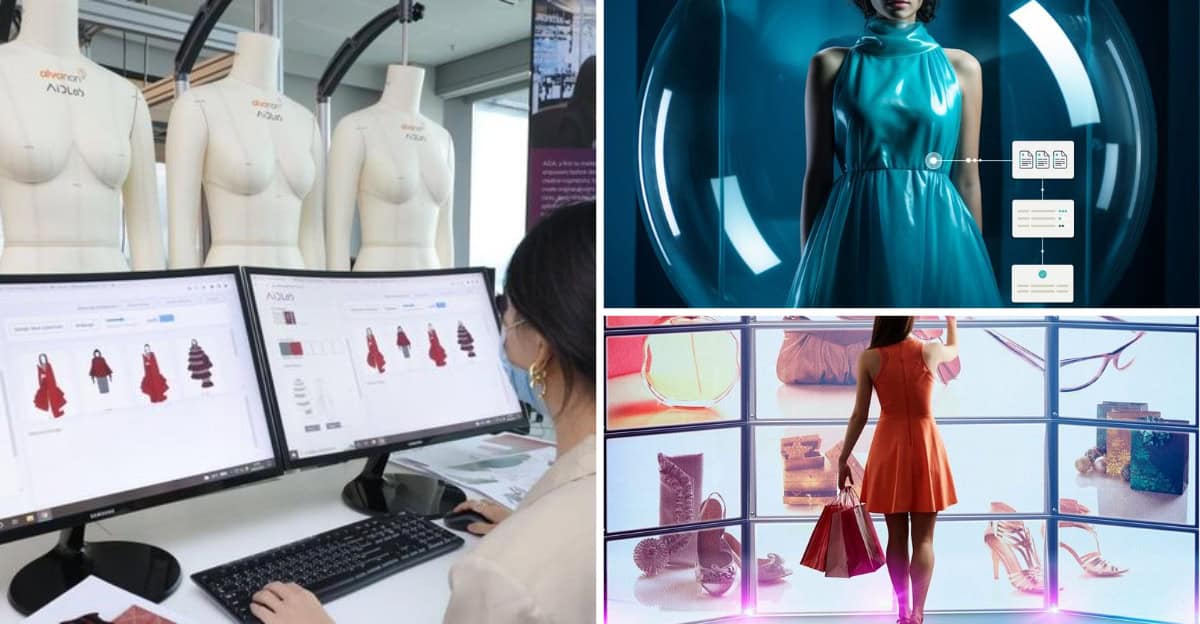Artificial intelligence (AI) is reshaping the fashion industry in profound ways, offering innovative tools and methods that enhance creativity and efficiency.
This blog post explores six fascinating facts about the role of AI in fashion design, highlighting how technology is revolutionizing creativity, personalization, sustainability, and more.
virtual design assistants to predictive analytics, AI is offering fashion designers unprecedented opportunities to innovate and excel in their craft.
1. Virtual Design Assistants
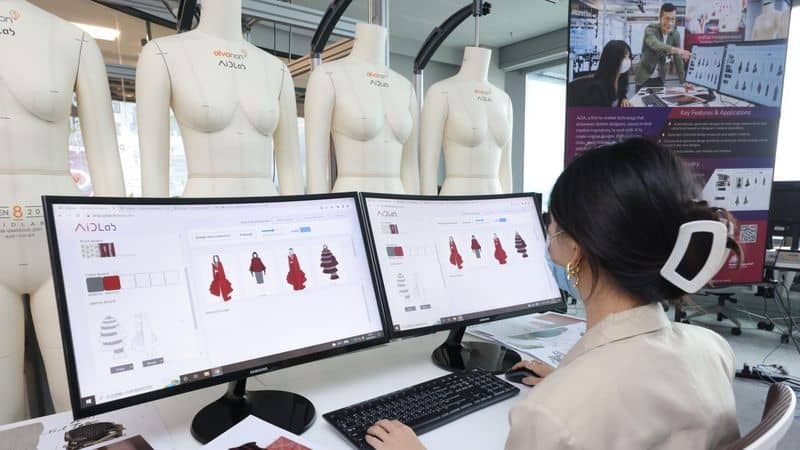
Imagine having a virtual assistant by your side, helping you draft fashion designs effortlessly.
AI-powered design assistants are transforming the creative process, allowing designers to explore countless possibilities with speed and precision.
These assistants can suggest styles, patterns, and colors based on current trends, helping designers stay ahead of the curve.
With machine learning algorithms, they can understand designers’ preferences, offering personalized recommendations that align with individual styles.
By automating routine tasks, designers can focus more on innovation and creativity, making the design process more efficient and exciting. AI is truly redefining the fashion workspace.
2. Personalized Fashion Experience

AI is at the forefront of delivering personalized fashion experiences, tailoring clothing recommendations to individual preferences.
By analyzing consumer data and shopping behaviors, AI systems can suggest outfits that match personal tastes and occasions.
This technology creates a seamless and enjoyable shopping journey, allowing customers to discover new styles that resonate with them.
Brands can build stronger relationships with their clientele by offering customized experiences, fostering loyalty and satisfaction.
Personalized fashion is no longer a luxury but a necessity, and AI is driving this transformation with incredible accuracy and innovation.
3. Sustainable Fashion Innovations
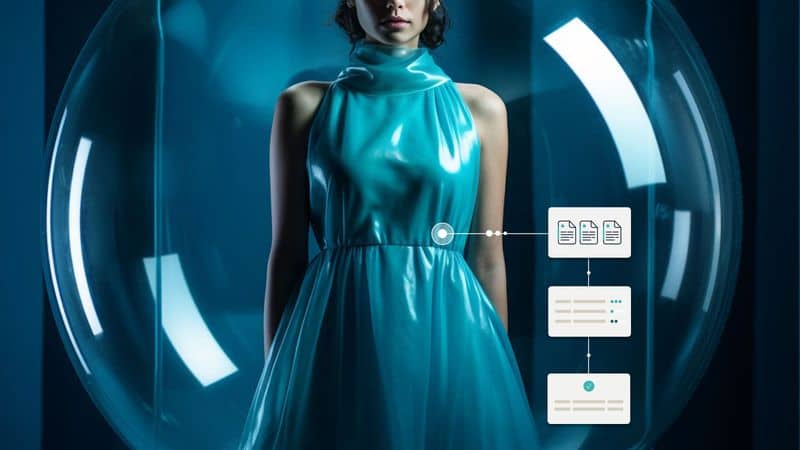
Sustainability in fashion is more crucial than ever, and AI is playing a vital role in promoting eco-friendly practices.
By analyzing data on materials, production methods, and lifecycle impacts, AI helps designers make environmentally conscious decisions.
Innovative AI tools can optimize material usage, reduce waste, and suggest sustainable alternatives, aligning fashion with ecological goals.
These advancements not only benefit the environment but also appeal to eco-aware consumers seeking responsible fashion choices.
With AI’s help, designers can embrace sustainability without compromising on style, leading the way towards a greener fashion industry.
4. AI-Driven Fashion Analytics

AI-driven analytics are empowering fashion brands to make informed decisions by providing deep insights into consumer preferences and market trends.
By analyzing vast amounts of data, AI can predict upcoming fashion trends and consumer demands with remarkable precision.
These insights help designers create collections that resonate with audiences, minimizing risks and maximizing success in the competitive fashion landscape.
Through AI-powered analytics, brands can stay one step ahead, adapting to changes swiftly and effectively.
The ability to forecast trends and understand consumer behavior is revolutionizing the fashion industry, making it more dynamic and responsive.
5. Virtual Try-Ons and Fitting
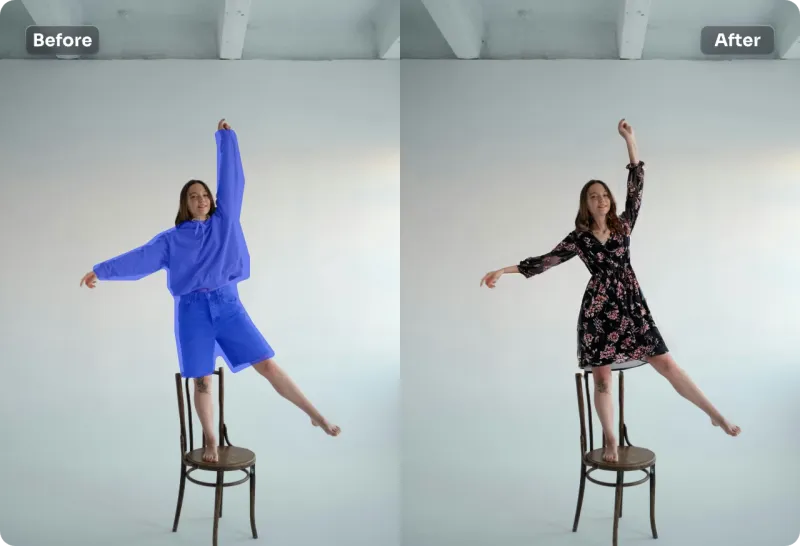
Gone are the days of lengthy fitting room queues, thanks to AI-powered virtual try-ons. These innovative tools allow customers to visualize how clothing will look and fit them before making a purchase.
By using augmented reality (AR) and sophisticated algorithms, virtual fitting rooms provide an immersive shopping experience.
This technology caters to the modern shopper’s need for convenience and speed, enhancing satisfaction.
Retailers benefit as well, with reduced return rates and increased conversions.
AI-driven virtual try-ons are reshaping the retail landscape, offering a futuristic and efficient way to shop for fashion.
6. Automated Fashion Production
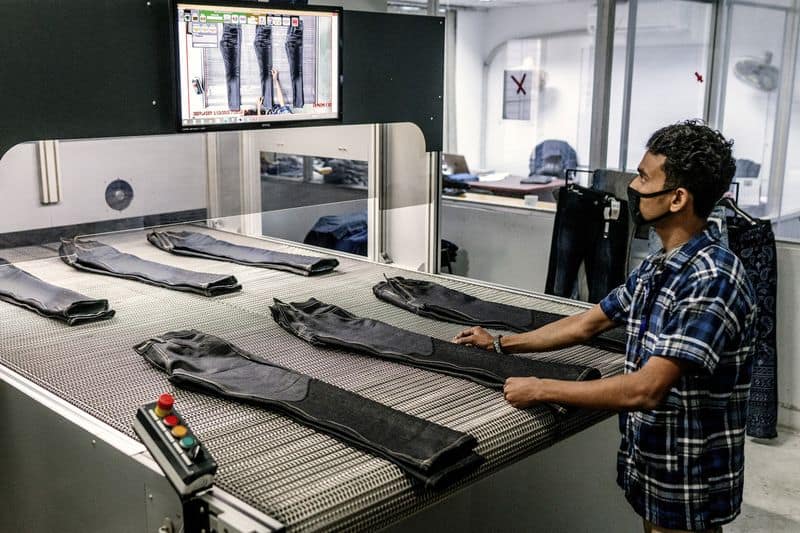
AI is revolutionizing the way fashion is produced, making manufacturing more efficient and precise. Automated production lines, powered by AI, execute tasks with accuracy, reducing human error.
These systems can adapt to changing designs on the fly, offering flexibility that traditional methods lack.
By streamlining production, AI enables brands to bring new collections to market faster without compromising quality.
Sustainable practices are also enhanced, as AI monitors resource usage and minimizes waste, aligning manufacturing with eco-friendly goals.
The future of fashion production is bright with AI, promising innovation and sustainability in equal measure.

